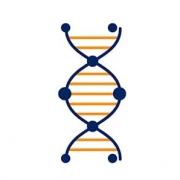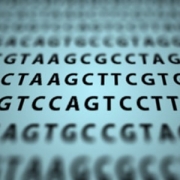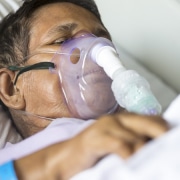Coronavirus and the human genome
A new nationwide study will sequence and analyse NHS patients’ genomes as part of the fight against the Covid-19 outbreak
Thousands of NHS patients will have their genome studied in a new initiative that seeks to understand why Covid-19 affects some people much more severely than others, with the hope that this information can be used to better identify, protect and treat those at greater risk from Covid-19.
35,000 genomes
The study aims to sequence whole genomes from 20,000 patients who required admission to intensive care as a result of coronavirus infection, as well as 15,000 people who had mild or moderate symptoms.
The study is currently recruiting from 170 intensive care units and around 2,000 genomes have already been collected. To reach the target figures, the study will attempt to recruit every Covid-19 patient who is admitted to intensive care, and patients who have already recovered from Covid-19 are also encouraged to take part.
Participation is entirely voluntary: genomes will only be sequenced from patients who give consent or whose next-of-kin consent if the patient lacks capacity.
Understanding the virus
The SARS-CoV-2 virus has very different effects on infected people, from being completely asymptomatic, through mild and moderate symptoms, to severe illness and fatal outcomes in some. While some risk factors such as age and pre-existing conditions are understood, these do not fully explain the wide variation in severity of symptoms.
NHS England chief scientific officer Professor Dame Sue Hill said: “This study has the potential to dramatically improve our understanding of Covid-19 – it could help us to identify whether underlying genomic differences play a part in how people react to the virus and why some people have few or no symptoms whilst others can get very ill.”
Focus groups
The project is especially keen to recruit children and young adults severely affected by Covid-19, as a part of the project will focus on this group.
The project may also help to answer questions around whether people from black and minority ethnic backgrounds are more likely to be severely affected by Covid-19. For this to work, BAME patients must consent to take part.
“We’re making a huge effort to enrol from every community and we would encourage people who represent the diversity of our nation,” Genomics England chief scientist Professor Sir Mark Caulfield told the Telegraph.
How the project will work
The genomes of people who had severe illness will be compared with those who had more manageable symptoms, to try to identify genetic factors associated with the body’s reaction to the virus.
The initiative is being led by Genomics England and Dr Kenneth Baillie from Edinburgh University. Dr Baillie’s GenOMICC (genomics of mortality in critical care) consortium was already sequencing the genomes of patients in intensive care with sepsis, influenza and SARS, so were well positioned when the coronavirus outbreak began.
Sequencing will take place at the same Illumina lab in Cambridge used for the 100,000 Genomes Project, and NHS staff in critical care wards will be involved in patient recruitment and sample collection.
Potential outcomes
It is hoped that the findings will make it easier to identify those most at risk, which could feed into more personalised shielding guidelines, as well as developing better therapies and assigning patients to clinical trials most likely to benefit.
Professor Sir Mark Caulfield said: “By reading the whole genome, we may be able to identify variation that affects response to Covid-19 and discover new therapies that could reduce harm, save lives and even prevent future outbreaks.”
–









